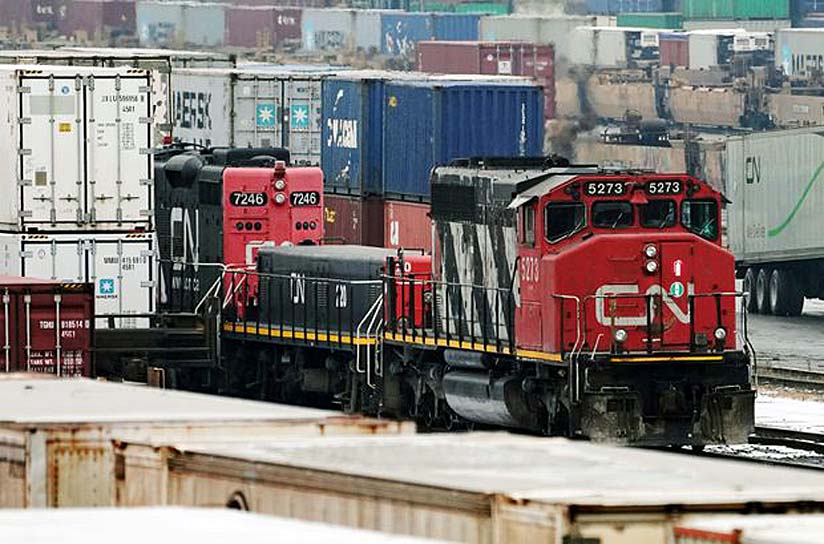
North America - Credit rating agencies are sounding the alarm on the billions of dollars worth of debt embedded in the bidding war between
Canada's two big railways for Kansas City Southern (KCS), pouring some cold water on the copious benefits projected by the rival bidders.
Three leading rating agencies, Moody's, Standard & Poor's, and DBRS Morningstar, have put CP and CN under review for a debt downgrade.
Moody's has already cut its rating on CP, citing a near doubling of its debt-to-earnings before interest, taxes, depreciation, and amortization (EBITDA) under
its proposed takeover.
While credit-rating agencies project synergies from a combination of CP or CN with KCS, many of which are projected to come from extending a Canadian railway
into Mexico, they remain worried about the debt levels required to pull off a deal, particularly for CN, which will fund its bid with US$19 billion worth of
debt.
The benefits of such a deal, including a larger network and a more diversified business, are compelling, DBRS Morningstar wrote in a note warning about a
possible downgrade of CN debt, "but these improvements are not sufficient to compensate for the much higher leverage over the next two to three
years."
By their very nature, credit-rating agencies are fixated on debt, meanwhile different stakeholders may take other takeover variables into account.
Yet heavy debt loads from overzealous mergers and acquisitions have troubled far too many companies over the years, and fixing the balance sheet when
something goes wrong is no easy task.
Just ask miner Barrick Gold.
As it stands, CP is willing to add US$8.6 billion of debt to its balance sheet, as well as assume US$3.8 billion that KCS already has on its
books.
In doing so, the railway's leverage will jump to 4.5 times its EBITDA, according to Moody's, up from 2.5 times at the end of 2020.
CN will fund its higher bid with much more cash.
If successful, the company will add US$19 billion of new debt to its balance sheet, plus the US$3.8 billion KCS has outstanding, more than doubling its
leverage to 4.5 times EBITDA, according to Moody's, up from two times at the end of 2020.
Rather than focus on the debt, the railways have touted the revenue opportunities from a merged company, a position taken by many analysts.
Automobiles and parts produced in Mexico can make it to the U.S. Midwest and Southern Ontario more easily, and grain and oil from Western Canada can travel
south with fewer bottlenecks.
The credit agencies acknowledge these benefits, but they temper their expectations relative to what equity analysts and the companies themselves project,
Moody's analyst Jamie Koutsoukis said in an interview.
The synergies are real, but "these take time to materialize, as opposed to the addition of debt at this point in time."
The multi-year timeline also adds economic uncertainty to the equation.
"Whichever deal is going to prevail, they're not going to actually be generating synergies until 2023," DBRS Morningstar analyst Amaury Baudouin
said in an interview.
"A lot can happen. The economy can change. We're just getting out of a pandemic, and who knows when we'll be back to normal."
Unlike Barrick Gold, whose revenue was heavily dependent on a single commodity, both CP and CN have diversified businesses, and they have multiple strings to
pull to help service their debt, such as pausing share repurchases.
The North American industry is also an oligopoly, so they can naturally grow by increasing prices, instead of being subject to a single volatile
commodity.
But, the rating agencies warn, the next recession could always be around the corner, and the leverage does not disappear.
"These companies, regardless of the environment, have to service the debt," Ms. Koutsoukis said.
Tim Kiladze.
(because there was no image with original article)
(usually because it's been seen before)
provisions in Section 29 of the Canadian
Copyright Modernization Act.
